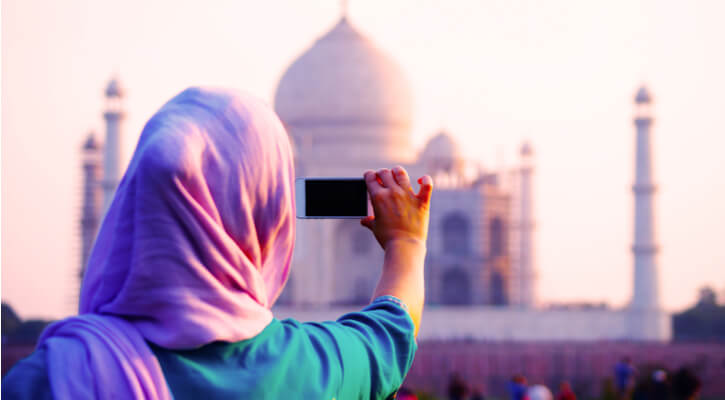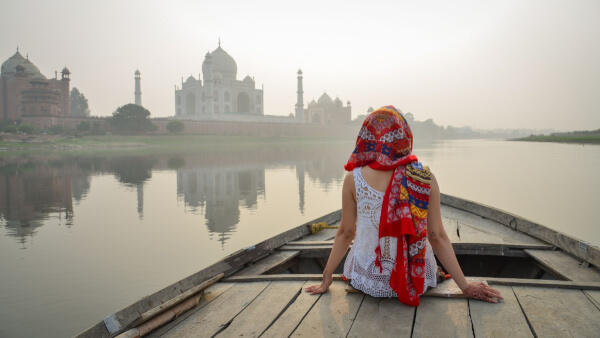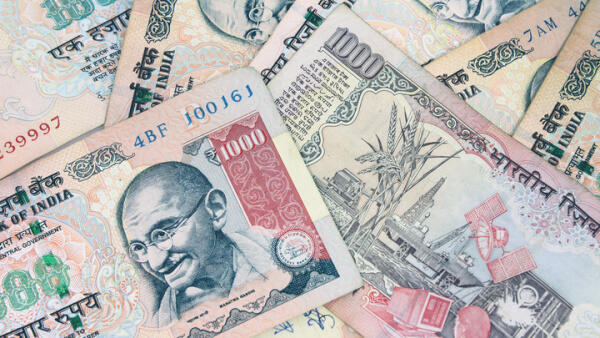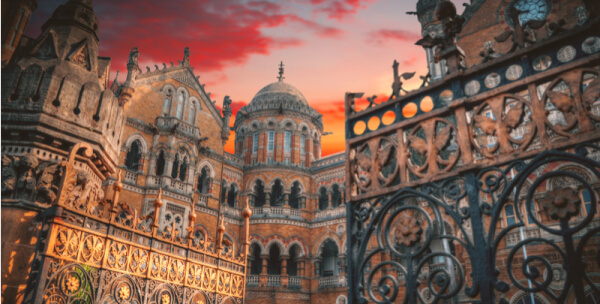Best Travel Insurance for India: Review of Options in Australia [2025]
Find the best travel insurance for India. Compare Australian providers' coverage options and prices for your Indian holiday.

Planning a visit to India? It’s a culturally diverse country with vibrant cities, breathtaking beaches, and majestic mosques. It’s a true destination for many expats and adventurers.
But before you go you need to prepare by getting a few shots and jabs so you can stay healthy on your trip. This guide will help you figure out what you need before you travel.
Immunisations, shots, and vaccinations are different things but they’re all related. Let’s start with immunisation, which is the overall process. When you immunise yourself from a disease, you make yourself resistent. The shot, or injection, is one way of immunising yourself, by sticking a needle into your body. What’s in the shot is called a vaccination. The vaccine stimulates your immune system so that it recognises the disease and makes you resilient to infection in the future. Sometimes immunisation requires multiple shots or injections of a vaccination and there's usually an expiry date. For example, the yellow fever vaccination lasts 10 years.
Getting vaccinated is important when you’re travelling because your body might be exposed to new foods, plants, people, animals, and climates. This is especially true if you’re travelling to a new country, region, or continent. These new conditions will expose you to germs and bacteria that your body might not be resilient to, and if you aren’t vaccinated you won’t be immune to falling sick.
Governments recommend that you take precautions when you travel and get the proper immunisations when you travel. Vaccinations help control the spread of disease, prevent outbreaks, and keep populations healthy.
The Zika virus, a virus carried by mosquitoes that causes severe birth defects, is a risk in India. Pregnant women shouldn't travel to India, and partners of or women who are considering pregnancy should know the risks and take preventative steps before travelling and getting pregnant after their trip. Unfortunately there's no vaccine for Zika, so travellers should know the risks and take preventative measures while they’re there.
While it's rare, there's also a small risk of cholera in some parts of India. This is a disease spread by drinking water or eating contaminated foods.
The Center for Disease Control recommends that all travellers be up-to-date on routine vaccinations - measles-mumps-rubella (MMR), polio, flu, chickenpox - before every trip. But travellers going to India should also get vaccines for hepatitis A and typhoid too.
Vaccinations notwithstanding, you’re likely to experience a case of ‘Delhi Belly.’ Around 70% of international travelers experience this unpleasant form of traveller’s diarrhea. It’s quite common and almost a traveller’s rite of passage. The causes are varied, but can come from either an adjustment to the cuisine and sanitation practices, viral or bacterial infections. You don’t get a vaccination for it and there’s no guarantee of avoiding it. However, you can lower your risk by avoiding tap water, eating familiar foods when possible, washing your hands, and taking preventive medicines like Travelan or antibiotics.
You should check with your doctor six weeks in advance of travelling to ensure that you’re up-to-date on all of your routine vaccinations. If you’re from a country which requires a yellow fever vaccination to visit India, you’ll need to get this done at least 10 days before you travel.
Also, make sure that your regular courses and boosters are up-to-date. Right before you’re about to travel isn't the best time to schedule a bunch of routine doctors appointments.
| Disease/vaccine | Vaccine required? | Recommended For... | Reason |
|---|---|---|---|
| Measles - mumps - rubella (MMR) | No | All travellers | This is a routine vaccination that should be done before traveling to any country |
| Diphtheria - tetanus - pertussis vaccine | No | All travellers | This is a routine vaccination that should be done before traveling to any country |
| Varicella (chickenpox) vaccine | No | All travellers | This is a routine vaccination that should be done before traveling to any country |
| Polio vaccine | No | All travellers | This is a routine vaccination that should be done before traveling to any country |
| Hepatitis A | No | Most travellers | You can contract hepatitis A through contaminated food or water |
| Typhoid | No | Most travellers | You can contract typhoid through contaminated food or water |
| Malaria | No | Some travellers | There isn’t a vaccine for malaria, but all travellers should know the risks of contracting malaria through mosquitoes and some travellers may need to take preventative medications |
| Yellow fever | Yes, for people arriving from these countries | All travellers coming from countries with a high risk of yellow fever | Yellow fever can be contracted through mosquito bites. Travellers should get the vaccine if they’re coming from a high risk country and take preventative measures not to get mosquito bites. |
| Rabies | No | Travellers involved in outdoor and other activities or those working closely with animals | Rabies can be found in several animals in India (i.e. dogs, bats and other mammals) |
| Japanese Encephalitis | No | Travellers visiting for more than a month and staying in rural areas | Japanese encephalitis is a virus spread by the bite of infected mosquitoes. It's more common in rural and agricultural areas |
| Cholera | No | Adults who are traveling to an area of active cholera transmission | Cholera is transmitted through contaminated food and water. Get vaccinated if you know you're going to an area where there's an active transmission of cholera |
| Hepatitis B | No | Travellers who might have sex with a new partner, have a medical procedure or any procedures involving needles (tattoos, piercing) | You can get hepatitis B through sexual contact, contaminated needles, and blood products |
When traveling to India you should be aware that mosquitoes carrying Zika thrive in warm weather and heavy rain. To avoid the wettest parts of the year, avoid traveling during monsoon season between July and September. This is also when most parts of India have the highest temperatures. It’s also good to be aware that malaria-transmitting mosquitoes usually bite between dusk and dawn, and mosquitoes carrying yellow fever rarely survive in high elevations. To mitigate the risk, stay inside when it’s not light out, and wear long sleeves and heavy-duty bug spray.
There are also certain regions of India that will present more risk. For example, risk of malaria is highest in the north-eastern states of Assam and Orissa. There’s almost no risk of contracting it in the cities of Bangalore, Kolkata, Mumbai, Nagpur, Nasik, and Pune. But cities aren’t always more immune to disease. For instance, Dengue Fever is more common in urban regions since the mosquitos that spreads are more prevalent in cities.
If you have an emergency in India you can dial the universal emergency number - 112. For an ambulance you can dial 102. You can also contact government agencies such as the:
India is a popular destination for many travellers worldwide. Whether you’re British, American, or Australian, you’ll need to think about how to maintain your health while visiting this exotic country. If you’re planning a visit you should prepare yourself by getting the right vaccinations ahead of time so you can stay safe and healthy. You can use this guide to help you understand what you need to do before you travel.
*Please see terms of use and product availability for your region or visit Wise fees and pricing for the most up to date pricing and fee information.
This publication is provided for general information purposes and does not constitute legal, tax or other professional advice from Wise Payments Limited or its subsidiaries and its affiliates, and it is not intended as a substitute for obtaining advice from a financial advisor or any other professional.
We make no representations, warranties or guarantees, whether expressed or implied, that the content in the publication is accurate, complete or up to date.

Find the best travel insurance for India. Compare Australian providers' coverage options and prices for your Indian holiday.

India is fast emerging as a top tourist destination for Australians with recent data showing Australia as one of the top four countries for arrivals to the...

If you’re traveling to India, you may not be familiar with the country’s complex banking practices. Read on for tips on currency exchange, Indian banks, and...

If you’re travelling to India on holiday, you can’t get cash ahead of time.Indian law doesn’t allow foreigners to bring Indian money into the country, unless...